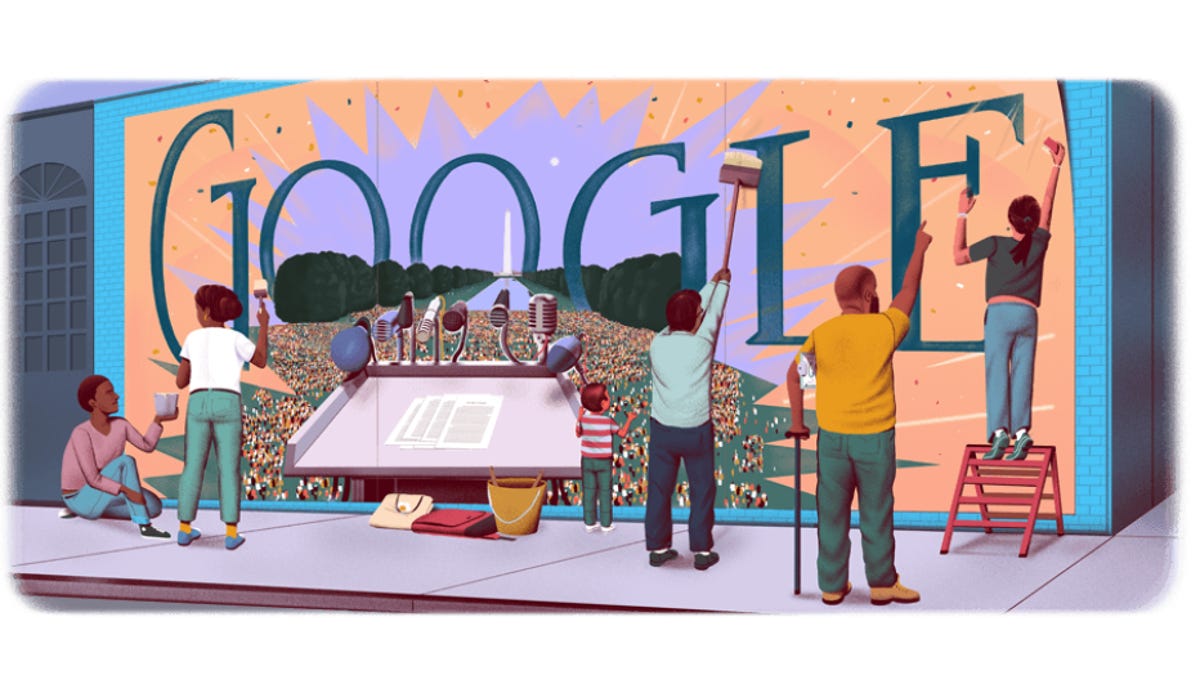Google Doodle Honors Rev. Martin Luther King Jr.
MLK Jr. Day is a national day of service that recognizes the life and accomplishments of the civil rights leader.

On this year's Martin Luther King Jr. Day, Google Doodle celebrates the idea of people coming together to honor the civil rights leader.
Monday's Doodle illustrates community action as one way of carrying out the Rev. Martin Luther King Jr.'s mission and vision. Brooklyn-based artist Richard A. Chance created the memorial Doodle.
On the side of a brick building, a group of people are putting up a large poster that depicts the view from King's podium during the 1963 March on Washington where he gave his historic "I Have a Dream" speech to around 250,000 attendees.
"Today and everyday, Dr. King's dream lives on in the hearts of millions of Americans who are taking action and giving back to their communities," the Google Doodle description says.
Celebrated on the third Monday of January, MLK Jr. Day is a national day of service that recognizes the strides that King made in the civil rights movement in the 1950s and 1960s.
Born on Jan. 15, 1929, in Atlanta, Georgia, King studied religion in college and afterwards entered Christian ministry. He helped organize demonstrations for the year-long Montgomery, Alabama, transit system boycott following Rosa Parks' refusal to give up her seat on a bus to a white passenger and her subsequent arrest.
A year after King's moving "I Have a Dream" speech and demonstration efforts, President Lyndon B. Johnson signed the Civil Rights Act of 1964, legally ending segregation and discrimination on the basis of race, religion or nationality.
The role King played in promoting racial equality earned him the Nobel Peace Prize in 1964. He was assassinated in 1968 and posthumously received the Presidential Medal of Freedom and the Congressional Gold Medal.

